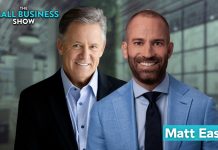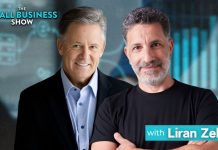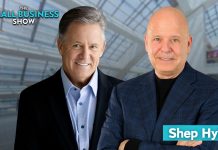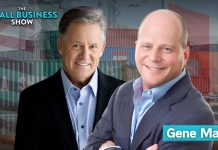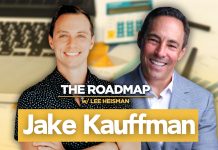On this episode of The Roadmap, Michael Davis, CEO and co-founder of Homegrown, reveals how his company offers a fresh approach to funding for brick-and-mortar businesses. Davis shares his personal journey growing up in an entrepreneurial family, the struggles of securing capital, and how Homegrown provides much-needed, non-dilutive financing to help entrepreneurs grow their businesses—without risking their personal assets.
Key Takeaways
1. Michael Davis emphasizes that undercapitalization is the number one reason most businesses fail. Drawing from his personal experience with his parents’ entrepreneurial struggles, Davis explains that many entrepreneurs underestimate the financial requirements to grow and sustain a business. Homegrown’s mission is to address this issue by providing the necessary capital without jeopardizing business owners’ personal assets or equity. This approach helps entrepreneurs scale their businesses while maintaining control.
2. Additionally, Homegrown specifically caters to brick-and-mortar businesses, which Davis defines as any business where consumers can physically walk into a location. This includes businesses like yoga studios, doctor’s offices, gyms, and restaurants but excludes tech companies. Davis highlights that brick-and-mortar businesses make up a large portion of U.S. consumer spending and are a vital part of local communities, making them a key focus for Homegrown’s financing model.
3. One of the unique aspects of Homegrown’s model is its offering of “non-dilutive expansion capital.” Davis explains that instead of requiring entrepreneurs to give up ownership (as equity financing would), Homegrown provides funding based on a revenue-sharing model. This allows businesses to grow without losing a stake in their company, which is essential for long-term financial success. Entrepreneurs only repay Homegrown through a small percentage of their revenue, meaning they don’t incur significant debt burdens.
4. Traditional loans often come with personal guarantees, which put entrepreneurs’ personal assets—like homes, cars, or savings—at risk if the business fails. Davis reflects on how his own family faced bankruptcy due to this issue. Homegrown’s model eliminates this risk, allowing entrepreneurs to pursue growth without putting their personal livelihoods on the line. Davis notes that this creates a safer environment for business owners to take calculated risks without fearing losing everything.
5. Nevertheless, Homegrown’s repayment structure is based on a percentage of monthly revenue across all business locations, meaning repayments fluctuate with business performance. Davis explains that if a business has a slow month, it pays less, and if it performs well, it pays more. This structure aligns Homegrown’s success with the entrepreneur’s, creating a partnership where both sides benefit from the business’s growth. This flexibility particularly appeals to small business owners dealing with unpredictable market conditions.
“Our model allows proven entrepreneurs to access capital without taking their ownership. And that’s one of the most powerful things we do. It enables entrepreneurs to grow their businesses without putting everything they’ve worked for at risk.” – Michael Davis.


